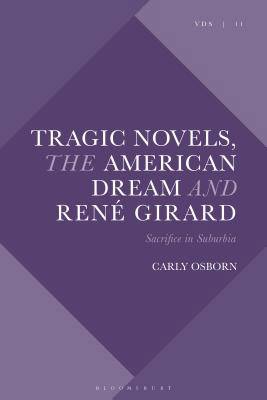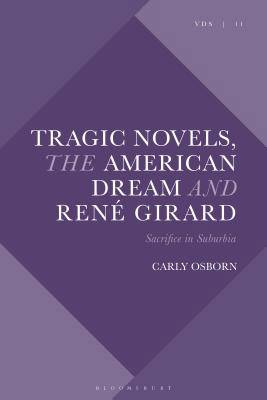
En raison d'une grêve chez bpost, votre commande pourrait être retardée. Vous avez besoin d’un livre rapidement ? Nos magasins vous accueillent à bras ouverts !
- Retrait gratuit dans votre magasin Club
- 7.000.000 titres dans notre catalogue
- Payer en toute sécurité
- Toujours un magasin près de chez vous
En raison de la grêve chez bpost, votre commande pourrait être retardée. Vous avez besoin d’un livre rapidement ? Nos magasins vous accueillent à bras ouverts !
- Retrait gratuit dans votre magasin Club
- 7.000.0000 titres dans notre catalogue
- Payer en toute sécurité
- Toujours un magasin près de chez vous
228,95 €
+ 457 points
Format
Description
This book draws on the philosopher René Girard to argue that three twentieth-century American novels (Jeffrey Eugenides's The Virgin Suicides, Rick Moody's The Ice Storm, and Richard Yates's Revolutionary Road) are tragedies.
Until now, Girardian literary analysis has generally focused on representations of human desire in texts, and neglected both other emotions and the place of tragedy. Carly Osborn addresses these omissions by using Girardian theory to present evidence that novels can indeed be tragedies. The book advances the scholarship of tragedy that has run from Aristotle to Nietzsche to Terry Eagleton, proposing a new way to read modern novels through ancient traditions. In addition, this is the first work to examine the place of women as victims, or in Girardian terms, 'scapegoats', in twentieth century fiction, specifically by considering the representation of women's bodies and ambivalence about their identities. In deploying a rich and vivid array of tragic tropes, The Virgin Suicides, The Ice Storm, and Revolutionary Road participate in a deep-rooted American tragic tradition. Tragic Novels, the American Dream and René Girard will be of interest to those working at the intersection of philosophy and literature, as well as Girard specialists.Spécifications
Parties prenantes
- Auteur(s) :
- Editeur:
Contenu
- Nombre de pages :
- 216
- Langue:
- Anglais
- Collection :
Caractéristiques
- EAN:
- 9781350083486
- Date de parution :
- 28-05-20
- Format:
- Livre relié
- Format numérique:
- Genaaid
- Dimensions :
- 156 mm x 234 mm
- Poids :
- 480 g

Les avis
Nous publions uniquement les avis qui respectent les conditions requises. Consultez nos conditions pour les avis.






